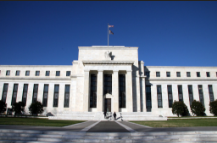The Price of Tomorrow
Students of the Austrian school of economics have been looking incessantly for price inflation ever since the Federal Reserve’s balance exploded. Sure, asset prices have expanded under the Fed’s pumping, but Weimer, Zimbabwe or Venezuela we are not. Milton Friedman famously posited, “Inflation is always and everywhere a monetary phenomenon in the sense that it is and can be produced only by a more rapid increase in the quantity of money than in output.” If that is true then what more is a central bank to do?
If you’re looking for another point of view, Jeff Booth has it for you, with “The Price of Tomorrow: Why Deflation is the Key to an Abundant Future.” You won’t find any Austrians other than Joseph Schumpeter and his creative destruction theory, which Booth makes the case is deflationary.
Booth is so sure of himself that his introduction is entitled “The End of Inflation.” I’ve lived long enough to learn one shouldn’t claim it’s the end of anything. “Technology is deflationary,” Booth writes unequivocally. “That is not conjecture. It is the nature of technology.” And, since technology is smothering more and more of the world and its goods and services, “we are entering into an age of deflation unlike the world has ever seen.” That sounds like hyperbole from you-know-who.
Booth believes the world was built for growth and inflation and that era is over. So while easy credit is being created at an incomprehensible pace, technology creates winners and losers with the result being “profoundly more polarized and unsafe.”
If governments don’t quit the money printing and allow technology to make things cheaper, “we drive more wealth inequality, more polarization, and more discord into our societies,” Booth writes.
Very early in the book, the conundrum appears, “there’s just one problem,” Booth writes, “if technology should be driving everything cheaper, why is life getting more expensive?” The author claims the rise in prices is artificial--”driven by an enormous rise in credit and debt.” Well, yeah. Perhaps a perusal of Mises and Rothbard might have come in handy, that’s been the Austrian view for a couple hundred years.
Booth’s point is economic growth is not driving inflation. Technology would be pancaking prices except for “easy credit and debt that masks what is really happening underneath.” The author does make the valid point, debt plus deflation will mean disaster, not hearty economic expansion. Instead, asset bubbles and busts meander across global economies.
Wealth and privilege have nothing to do with ingenuity and hard work, says Booth, but instead, government money printing, which “is nothing more than crony capitalism...a political system that rewards its insiders.”
Booth offers stories about disruptors, like Blockbuster, which after disrupting, was, in turn, disrupted into bankruptcy. Jeff Bezos and Amazon, before being the corporate colossus they are now, were once on the verge of bankruptcy.
Booth provides a Schumpeter quote which should give everyone pause: “In breaking down the pre-capitalist framework of society, capitalism thus broke not only barriers that impeded its progress but also flying buttresses that prevented its collapse. The capitalist process in much the same way in which it destroyed the institutional framework of feudal society also undermines its own.”
The author also leans on Hyman Minsky, who wrote about stability being unstable. This quote from his 1986 book “Stabilizing an Unstable Economy,” is especially illuminating. “Every time the Federal Reserve protects a financial instrument, it legitimizes the use of this instrument to finance activity. This means that not only does Federal Reserve action abort an incipient crisis, but it sets the stage for a resumption in the process of increasing indebtedness--and makes possible the introduction of new instruments.”
Minsky said it isn’t debt per se which undermines capitalism but the socialization of losses when faced with collapse which “undermines capitalism’s own institutional framework.” Booth adds that after the 2008 rescue, the world’s debt has grown by almost 50 percent.
Booth manages to work behavioral economics into his story. For instance he believes it's because of sunk-cost bias that we hold on to the present print and grow economic model “for fear of loss of the status quo.” But there will be no status quo with the deflation brought about by technology. “The cost of one megabyte of hard drive memory has fallen from approximately $1 million in 1967 to 2 cents today,” writes Booth.
We can easily imagine what that means for the cool stuff that will be on our smartphones. What I can’t fathom is what cheaper computing power will do for the price of a can of beans.
Much of Booth’s thesis works toward a lack of work. Self-driving cars and trucks will put drivers on the unemployment line, but will bring down shipping costs. Vehicles are under utilized, 95 percent of the time we aren’t driving them, Fractionalized ownership of vehicles will again be deflationary.
Why go on vacation, when a computer can simulate the feeling of skiing the Alps? Or, more close to home, why not play craps in a computer generated casino, rather than flying to Vegas. Three D printing will make large manufacturing plants obsolete and shipping, again, cheap or unnecessary.
Solar energy and artificial intelligence (AI) will drive costs down and make for a whole new world. Our brains haven’t changed in 300,000 years. “All our knowledge grows only through the correcting of our mistakes,” wrote Karl Popper. What makes AI devastating is it can learn to correct millions of mistakes in seconds. “Soon--perhaps already--that rate of growth will be too fast for our minds to keep pace,” Booth writes. “We will be chasing ever further behind our machines. Then who will be the masters?”
Maslow’s Hierarchy of Needs even makes an appearance. People will always have a need for happiness, but also have a tendency to create us-versus-them scenarios and grievances. At this point Booth sees a rise in extremism and makes a few points from a book called “Four and a Half Years (of struggle) against Lies, Stupidity, and Cowardice,” also known as “Mein Kampf” by Adolph Hitler.
Booth writes, “it is worth considering that many of the people Hitler persuaded into following him were, in his own words, a vacillating crowd of human children.” Sound familiar?
Mr. Booth reminds us that membership in the S&P 500 averages 33 years, but is forecasted to drop to 12 years due to technology. Sound shocking? Think Kodak, Blockbuster, and Sears. As he comes to a close, Booth writes, “A true capitalist system could work well in that environment because there would still be an incentive to work harder and innovate. Prices of all things would fall, yes, but those creating value would be paid for their value creation--at a rate that matched the new realities of supply and demand and our digital world.”
A true capitalist system, with lower prices, and higher prosperity. Imagine that.





